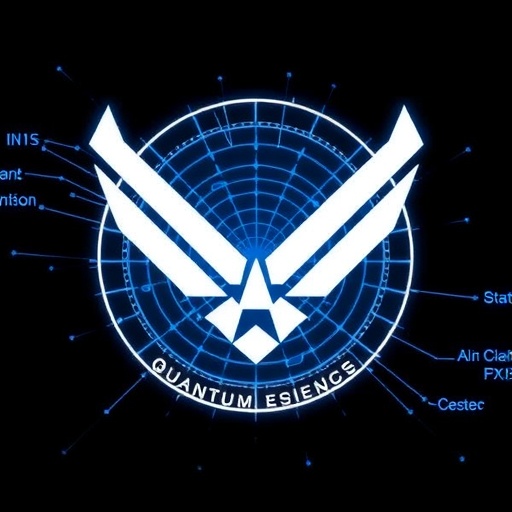In a significant advancement for defense technology, Quantum Research Sciences (QRS), an innovative software company based in Indiana, has been awarded a contract by the U.S. Air Force to develop a groundbreaking artificial intelligence-driven platform known as ACID-R, or Automated Commercial Industry Data-Repository. This ambitious initiative aims to revolutionize the way the Air Force identifies and capitalizes on necessary technologies emerging from the private sector.
The ACID-R platform is specifically designed to address the inefficiencies currently plaguing the Air Force’s procedures for reviewing technology proposals. Traditionally reliant on outdated communication channels like email, proposals often arrive in lengthy formats that bury essential information within extensive PDF documents, some reaching up to 20 pages. This method not only hinders the efficiency of the review process but also complicates the ability of the Air Force to sift through myriad technological solutions available in the marketplace.
QRS’s CEO, Ethan Krimins, articulated the pressing need for a more streamlined solution, stating that “ACID-R is designed to streamline access to commercial capabilities, accelerating defense modernization with sustainment and logistics.” The AI-driven platform will significantly enhance the efficiency of data retrieval, allowing vendors to upload their capability statements directly to the system. The software will intelligently extract vital information from each submitted proposal, which will fundamentally transform the proposal evaluation process for Air Force personnel.
Once the capability statements are uploaded, the system’s sophisticated algorithms will enable the Air Force to view, search, and filter through thousands of submissions. This innovation not only saves time but also minimizes human errors associated with manual reviews. Furthermore, ACID-R will automatically alert vendors of any missing information required for their proposals, ensuring that they are better equipped to meet the Air Force’s specific needs and requirements.
To support the development of the ACID-R platform, QRS is collaborating with Purdue University’s Rosen Center for Advanced Computing (RCAC), a recognized leader in high-performance computing and artificial intelligence innovation. In this collaboration, QRS can leverage Purdue’s vast resources and expertise to develop a cutting-edge technology that meets the evolving demands of the military sector. Laura Theademan, director of RCAC Center Operations and Visualization, noted the longstanding partnership with Krimins, emphasizing that this USAF project represents a significant milestone in their collaborative efforts.
As this initiative unfolds, Program Leader Daniel Madren, the senior research development administrator at RCAC, has proactively engaged with Air Force counterparts on nearly a daily basis to ensure the project’s momentum. His enthusiasm about the progress being made reflects a collective commitment to excellence among the diverse team of AI scientists, research software engineers, and visualization experts working alongside QRS.
The implications of the ACID-R platform extend beyond its immediate utility; it aligns with broader trends in the defense sector towards successful integration of advanced AI techniques. With the increasing complexity of modern warfare, the ability to promptly access relevant technological solutions is paramount to maintaining national security. The Air Force’s embrace of sophisticated AI frameworks indicates a forward-thinking approach to enhancing operational effectiveness.
QRS is no stranger to cutting-edge technology, having previously developed the Department of Defense’s first operational quantum software. Their ongoing collaboration with Purdue University’s Department of Physics and Astronomy reinforces their position at the intersection of quantum computing and national security. This multidimensional approach underscores QRS’s mission of delivering software solutions designed to tackle significant defense challenges head-on.
Krimins emphasized the responsibility that comes with such innovation, asserting that “our company’s mission-driven approach emphasizes thorough discovery and coordinated deployment of software solutions that can solve real-world defense challenges.” This statement encapsulates the dual objectives of technological advancement and improved operational outcomes that QRS aims to achieve through the ACID-R project.
In a landscape where technological innovation can dictate the outcomes of military engagements, the introduction of AI-driven platforms like ACID-R marks a pivotal shift toward enhancing the agility and precision of defense operations. By leveraging the power of private-sector innovation, the U.S. Air Force is poised to accelerate its modernization efforts significantly, ensuring preparedness in an ever-evolving global security environment.
The collaboration with Purdue Innovates illustrates the synergy between academia and industry, highlighting the crucial role that higher education institutions play in advancing technological frontiers. Purdue Innovates functions as a conduit for technology commercialization, connecting researchers with the resources and expertise needed to translate innovative ideas into impactful solutions.
Looking ahead, the ACID-R platform is expected to set a new standard for how defense agencies interact with the commercial technology sector. The efficiency and effectiveness gained through AI-driven proposals will ultimately facilitate a faster response to emerging threats while enhancing the overall operational capabilities of the U.S. military.
As the initiative progresses, ongoing collaborations and advancements in AI and computing will undoubtedly continue to shape the future of military technology, highlighting the vital importance of innovation in safeguarding national security.
In summary, the ACID-R platform represents a significant leap forward for military technology acquisition processes. Through strategic partnerships and leveraging advanced AI capabilities, QRS is charting a new course for the United States Air Force, enhancing its capacity to adapt and respond to the complex demands of modern warfare.
Subject of Research: Artificial Intelligence in Defense Technology
Article Title: Quantum Research Sciences Innovates Military Technology with AI-Driven Platform
News Publication Date: [Date not provided]
Web References: [Links to various references not provided]
References: [References not provided]
Image Credits: [Credits not provided]




